Best Cities To Live In Mexico In 2026
Mexico remains one of Latin America’s most compelling destinations, especially for North Americans. More than a million expats call it home, and tens...
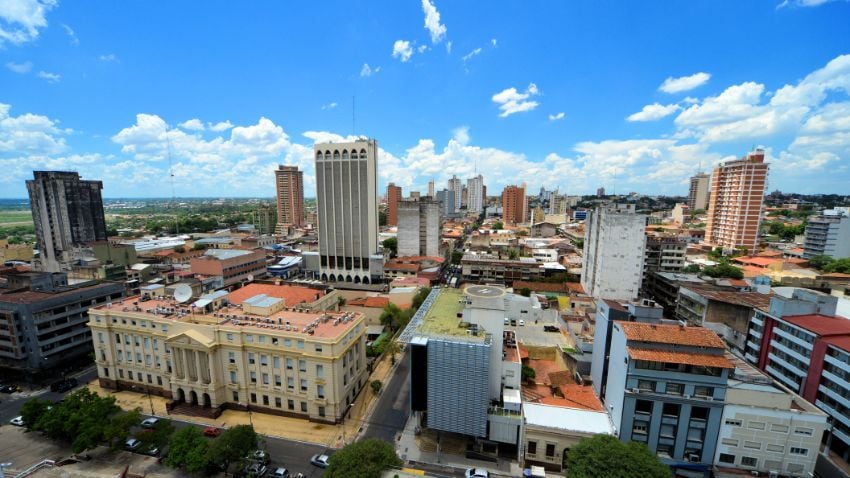
5 min read
Paraguay, a landlocked country in the heart of South America, has enticing benefits for expats looking to keep more of their money. Often overshadowed by the larger economies of the region, Paraguay is a good opportunity for those willing to take the road less travelled.
As a backup location, Paraguay ticks many of the boxes you could think of, such as a stable economy with no exchange or currency controls, a tax-friendly system and no CRS reporting. Additionally, it’s a large food producer with a vast underground aquifer, making it a food and water-independent country.
In this article, we’re exploring how Paraguay can serve you as a jurisdiction to protect your wealth through tangible investments such as agribusiness and timber, corporate structures and low taxes, helping you keep more of your money where it belongs – in your pockets.
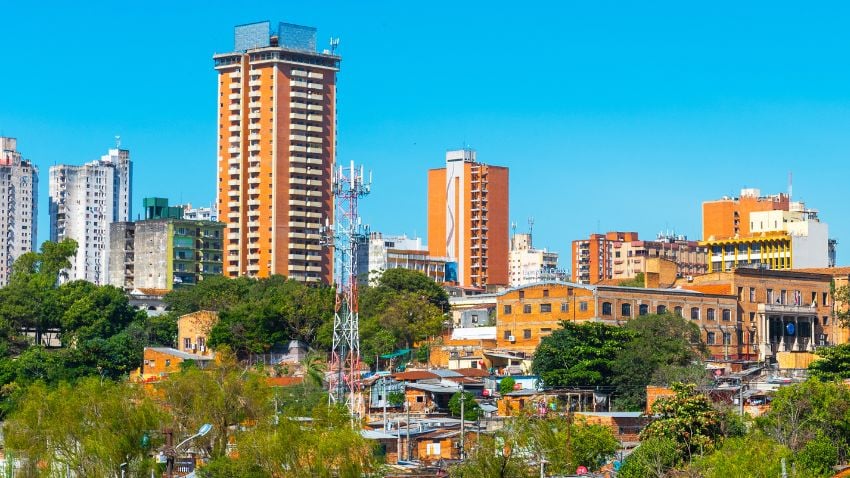
Asuncion, Paraguay
Before discussing the wealth protection and tax perks Paraguay has in store for expats, let’s take a look at its legal framework to get an idea of some basic features.
Paraguay has a civil law system, so it’s based on written laws rather than court case rulings. The Supreme Court of Justice, Appeal Courts, and Lower Courts comprise the fundamental structure of the Paraguayan judicial system. The primary source of law is the official gazette (in Spanish, Gaceta Oficial de la República del Paraguay).
Paraguay boasts a business-friendly environment, ensuring equal treatment for foreign and domestic investors. This means that both have the same guarantees, rights and obligations. As per Law No. 117 on Investments, the investor is granted:
Property rights;
Freedom to contract investment insurance;
A free trade regime that includes freedom of production and marketing of goods and services; free pricing, freedom of export and import of goods and services; and freedom of trade in services.
Also, the Joint Venture modality is recognized for joint investments between domestic and foreign investors.
Paraguay's free exchange policy is established under Law 117 on Investments. This law makes it easier for capital to enter and exit without restriction, giving investors access to a clear and adaptable environment. By removing exchange limitations, the bill seeks to encourage international investments by offering a solid economic base.
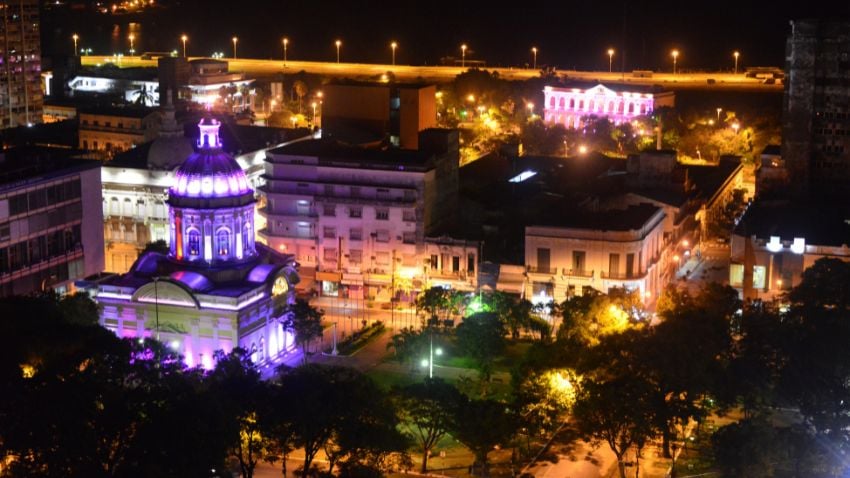
The lights at night make Asuncion still more beautiful
First, we need to understand what ‘tangible investments’ mean. This concept refers to assets you can touch, smell and feel. In the case of Paraguay, we’re talking about agricultural assets and timber, which offer a great opportunity for investors.
This is the ideal asset for long-term investors and self-sufficiency seekers. Paraguay exports multiple raw materials such as meat, soybeans, corn and rice, showcasing its status as an agricultural country. These days, it is looking to increase its competitiveness by developing advanced products to compete in global markets.
Paraguay is one of the world’s biggest exporters of meat, exporting 474,297 tons of beef, lamb, goat, pork, and poultry, as well as leather, leather goods, leather footwear, and preserved meat products. The country is actively working on attracting local and foreign investments. Other raw materials the country actively exports are grains, oils, aromatic and medicinal herbs and infusions.
If you want to invest in tangible assets like my clients and I do, Paraguay could be an excellent place for you to get some cattle or crops – solid hedges against inflation.
Paraguay boasts a privileged geographical location due to its latitude, fertile lands, subtropical climate and abundance of water. Unlike neighbouring Brazil and Argentina, Paraguay has not been that exploited yet. The increasing demand for wood and higher costs in other countries put Paraguay in a privileged position in this sector.
Decree 2285 of 2014 declares as a matter of national interest programs and forestry enterprises that promote sustainable land use and biomass generation for energy and cellulose purposes. Furthermore, the National Reforestation Plan sets the goal of creating 450,000 hectares of forest plantations within 15 years. These programs provide a favourable framework for the growth and development of the forestry industry in Paraguay.
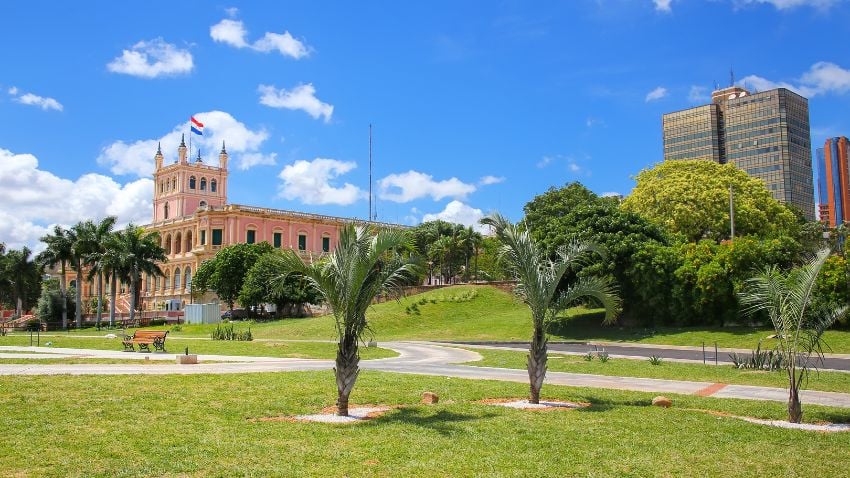
Asuncion is the capital and the largest city of Paraguay
Paraguay presents an array of corporate structures tailored to your needs, each offering advantages. Each type offers unique features and benefits, so you can find one to optimize your wealth and taxes.
Simplified joint-stock companies (in Spanish, EAS or ‘Empresas por Acciones Simplificadas’) are notable corporate vehicles designed for simplicity and flexibility, especially catered to entrepreneurs. Key features include:
Ease of formation: simplified joint-stock companies are straightforward to establish, streamlining the incorporation process;
Limited liability: shareholders’ liability is limited to capital contributions, offering a shield for personal assets;
Flexibility in shareholder structure: simplified joint-stock companies allow for a flexible distribution of shares, so expats can pick the ownership arrangement they see fit.
The 'Sociedad Anónima,' commonly referred to as a "corporation," is a suitable corporate vehicle for expats looking for a more hierarchical structure with robust features and potential applications:
Corporate structure: A corporation provides a more formalized structure with separate roles for shareholders, officers and directors;
Access to capital: through the issuance of shares, a corporation facilitates the raising of capital, making it an excellent choice for expats looking to scale their business;
Perpetual existence: even in the absence of the original shareholders, a corporation can exist indefinitely.
The ‘Sociedad de Responsabilidad Limitada,’ commonly referred to as LLC in English, is the right choice for expats concerned about personal liability and finding operational flexibility:
Limited liability: similar to other jurisdictions, the SRL structure safeguards the personal assets of its members;
Operational flexibility: SRLs offer operational flexibility, so any business venture, whether small or large, can be conducted with them;
Pass-through taxation: profits and losses can pass through to individual members, increasing tax efficiency.
An extra corporate structure often used in Paraguay is no other than the Branch Office (in Spanish, ‘sucursal’). In this case, the parent company must meet certain requirements, such as appointing a local representative domiciled in the country and getting documents legalized by the appropriate Paraguayan consulate and the Ministry of Foreign Affairs.
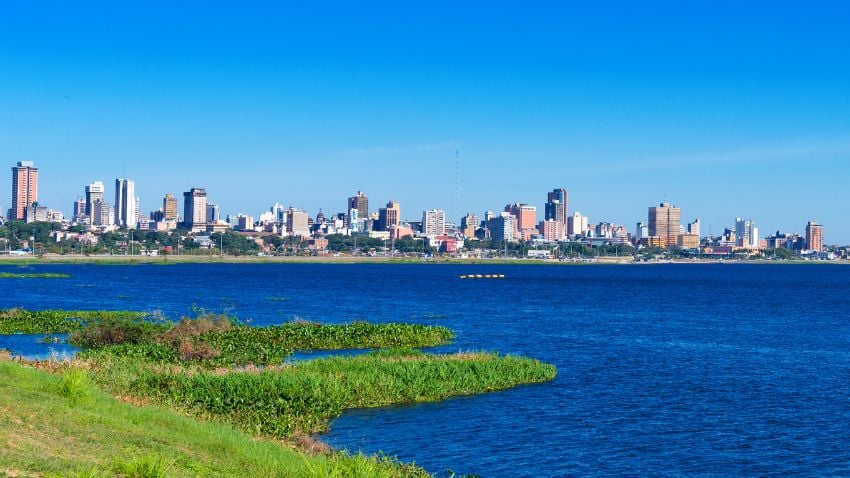
Paraguay River
Governed by the law no. 6380/2019, Paraguay’s tax regime is a hidden gem in the expat landscape thanks to its surprising benefits. Let’s check what the tax rates are:
Also known as Corporate Tax in English, this tax is a mere 10% rate, allowing corporations to reinvest more of their money into their business and fostering growth. In particular, this is a favourable prospect for companies whose profits are below 2.000.000.000 Gs (around 270,195.20 USD).
Also known as tax on dividends and profits in English, the applicable rate is 8% for residents and 15% for non-residents. This tax is applied to the profits generated by companies that can be distributed to the owners, consortium owners, consortium members, partners or shareholders.
Also known as Non-Residents Income Tax in English, the applicable rate is 15% as in the previous case. Therefore, this tax is paid regardless of the taxpayer’s representation in Paraguay.
Also known as VAT or Sales Tax in English, this is a consumption tax of 10%. This ensures that the cost of living remains reasonable, especially for expats earning in stronger currencies. Plus, specific categories, such as real estate transactions and essential products like food, benefit from a reduced 5% rate. This shields consumers and producers from excessive taxation and encourages investment in key sectors.
This is the cream of the crop, as all income generated abroad is tax-free, making Paraguay a territorial tax system. This is an enticing tax incentive stipulated in Article 48 of the law, which allows expats to make the most of their money by keeping all the fruits of their labour and spending or investing them however they want.

Magical Golden Sunset in the Pantanal Wetlands in Paraguay
All in all, Paraguay is an attractive country for expats seeking financial stability, low taxes and opportunities. With benefits such as no CRS reporting and various corporate structures, it’s possible to protect your wealth and conduct business effectively. The investment climate is foreign-friendly, and the cherry on top, the country’s territorial tax system, adds to its appeal to expats working in foreign markets.
You might have never considered Paraguay as a backup location, let alone your future home, but at least on the investment front, it’s an appealing place to put your money in and make it grow, especially if you’re interested in tangible assets. Many private clients of mine and I typically go for these types of investments as they serve as hedges against inflation, increasing in value year after year.
If you want to become a private client too, fill out this form, and I’ll get back to you. Also, don’t forget to sign up for our newsletter down below and stay up to date for future publications and special offers for expats like you.
If you want the best intel from the expat world, including profitable offshore opportunities, little-known tax-saving strategies, and hard-won insights on immigration, passports, and Plan-B residencies, all delivered to your inbox every single week, then join our daily correspondence, EMS Pulse®. Currently enjoyed by over 84,000 expats and expat-hopefuls worldwide. Fill in the form below to join our newsletter free:

Written by Mikkel Thorup
Mikkel Thorup is the world’s most sought-after expat consultant. He focuses on helping high-net-worth private clients to legally mitigate tax liabilities, obtain a second residency and citizenship, and assemble a portfolio of foreign investments including international real estate, timber plantations, agricultural land and other hard-money tangible assets. Mikkel is the Founder and CEO at Expat Money®, a private consulting firm started in 2017. He hosts the popular weekly podcast, the Expat Money Show, and wrote the definitive #1-Best Selling book Expat Secrets - How To Pay Zero Taxes, Live Overseas And Make Giant Piles Of Money, and his second book: Expats Guide On Moving To Mexico.

Mexico remains one of Latin America’s most compelling destinations, especially for North Americans. More than a million expats call it home, and tens...

South Korea is far more than K-pop and K-dramas. It is a country known for outstanding food, from bustling street markets to high-end dining, as well...
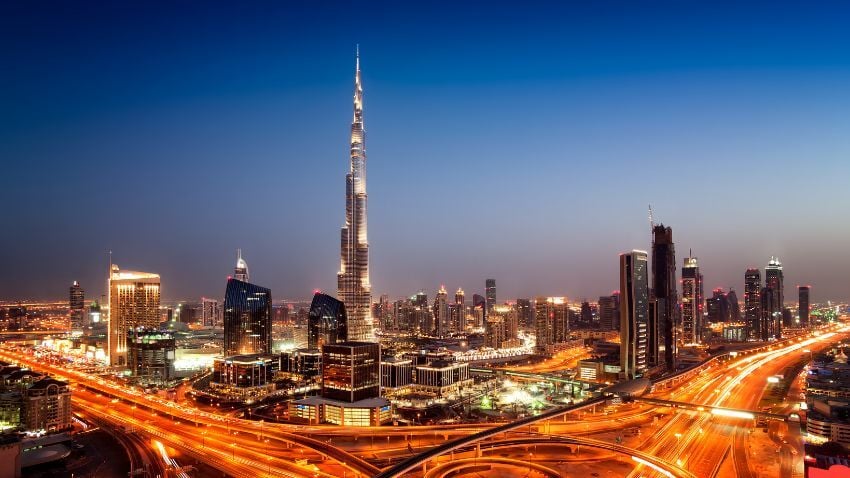
Asia is one of the most fascinating regions in the world for travel, offering an extraordinary mix of cultures, histories, and landscapes. From...